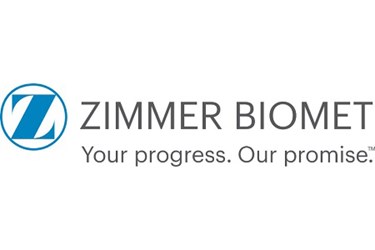Zimmer Biomet Buys Integrated Skeletal Implant Prosthesis Maker

Zimmer Biomet has announced a deal to acquire Ortho Transmission and its technology, developed by a U.S. military surgeon, which may improve mobility for amputees. Transcutaneous osseous integrated skeletal implants offer an alternative to traditional limb prosthesis sockets, and their development is part of Zimmer Biomet’s ongoing collaboration with the U.S. Department of Defense, said the company.
The current standard in limb prosthesis uses a socket that fits over the remaining limb, which can cause chafing and discomfort for the user, and must be refitted and replaced many times over the life of the prosthesis. Recent advances in prosthetic technology have developed an alternative to sockets, which allow the prosthetic to be directly fixed to the patient’s skeleton.
Though the technology is not appropriate for everyone and does carry some risks, a recent study published in Medicine found osseointegrated prosthesis fixation (OPF) substantially improved patient quality of life compared to traditional socket technology in specific cases. Another study found that patients with OPF significantly increased their walking ability.
Zimmer Biomet said in a press release that it is planning another clinical trial to test the technology developed at Ortho Transmission by Ronald Hugate, a former U.S. military surgeon who has spent 10 years developing the transdermal device.
Todd David, VP and GM of Zimmer Biomet’s global knee business, calls transcutaneous osseous integrated technology a “fundamental innovation in limb replacement.” David added that the implant is compatible with Zimmer Biomet’s advances in materials technology, namely Trabecular Metal, which offers 80 percent porosity and is similar in structure to bone.
“Our leading research and development capabilities, combined with our proprietary Trabecular Metal material to support bone ingrowth and vascularization, represents the ideal platform to accelerate the commercialization of this implant,” said David in a press release.
Zimmer’s merger with Biomet was completed in June 2015, after the companies divested some of their knee implant business to British-based rival Smith & Nephew, in accordance with conditions of the U.S. Federal Trade Commission. The completed merger was worth an estimated $14 billion.
The FDA recently cleared Zimmer Biomet’s 3D-printed foot and ankle implant, which offers an all-in-one alternative to traditionally used plates and screws. John Early, orthopedic surgeon from the Texas Orthopedic Associates and co-developer of the construct, said the device offers “osseointegration across the entire fusion site” for a more durable and stable solution.
